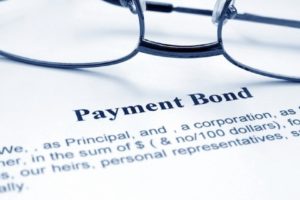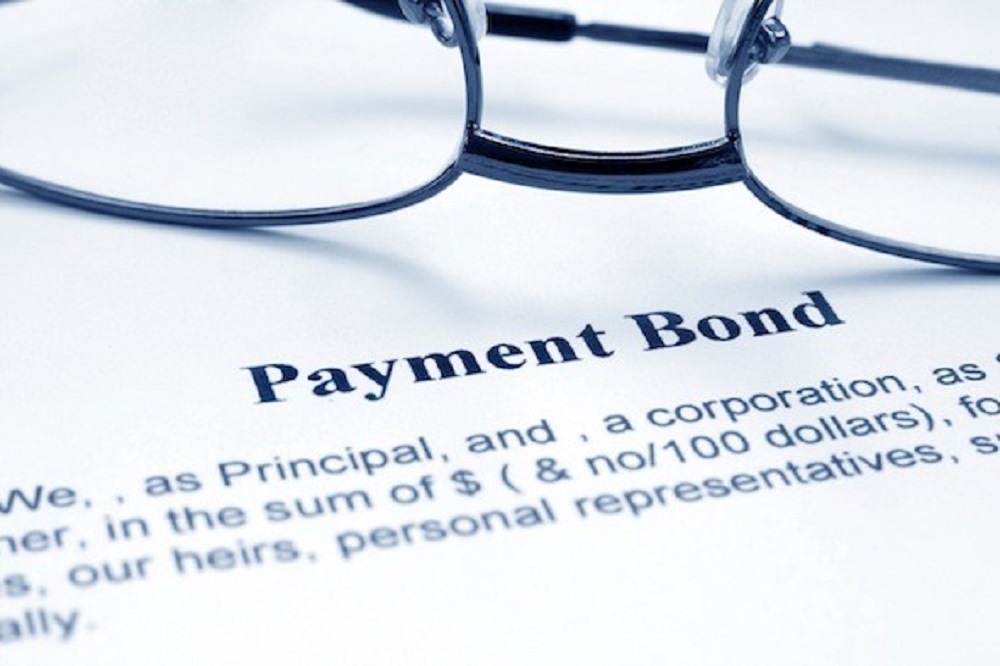
Construction Payment Blog is not just focused on mechanics liens; another topic we routinely cover is payment bonds. As we’ve discussed in many other posts, general contractors on public works projects are generally required to secure a bond on the project to ensure payment of subs – and not at the expense of public entity double payment. These bonds are called “payment bonds” because they guarantee payment to certain parties who furnish work or labor to a public project. But what happens if the contracting public entity fails to require the securing of a payment bond by the general contractor? Is it the public entity’s job to ensure the bond is secured, or is it the general contractor’s, and on which party does nonpayment liability fall, if there is no bond securing payment on the project? While this answer will vary by state, the South Carolina Supreme Court just provided some guidance for public projects in the Palmetto State.
Payment Bond Law in South Carolina
South Carolina Code § 29-6-250 lays out the requirements for projects on which a payment bond must be secured. Specifically, a payment bond is required when:
- One of the parties in a “contract to improve real property” is a governmental body, and;
- The contract is worth more than $50,000.
When both of these conditions are met, the owner of the property must require that the contractor take out a “labor and material payment bond in the amount of the contract.” This duty on the part of the public entity is outlined later in the statute, which states that:
It is the duty of the entity contracting for the improvement to
take reasonable steps to assure that the appropriate payment bond is
issued and is in proper form
Unfortunately for the sake of clarity and specificity, however, the statute does not specifically state the consequences of a public entity’s failure to require the general contractor to secure the mandated payment bond.
Shirley’s Iron Works v. City of Union, South Carolina et al.
The facts giving rise to the dispute in Shirley’s Iron Works v. City of Union, South Carolina are fairly simple. The City of Union (The City) contracted with Gilbert LLC (Gilbert), a general contractor, for the “design and construction of a spec building.” Gilbert was to be paid $875,000 for the work. The City did not require Gilbert to secure a payment bond, and no such bond was secured. Gilbert then hired numerous subcontractors, including Shirley’s Iron Works (Shirley’s) to perform labor and supply materials to the project. Ultimately, Gilbert failed to fully pay all the subcontractors, including Shirley’s, after they finished work on the project. At the project’s completion, however, the City also still owed $111,270 on its contract with Gilbert, and numerous subcontractors has outstanding invoices.
After receiving notice of Gilbert’s failure to pay its subcontractors, the City offered to distribute the balance of the contract to the unpaid contractors in an exchange from a release of liability. Shirley’s would have received $25,000 from this offer, and since the unpaid invoices totaled more than $132,000, Shirley’s refused this offer. Shirley’s filed suit agains the City, alleging that:
The City should be required to pay the amounts owed under their respective subcontracts because the City failed to require Gilbert to secure a payment bond in violation of [South Carolina law]
The violation, as we discussed above, is that the City refused to require Gilbert to take out a payment bond for the full amount of the contract price.
After various lower court rulings, opinions, and questions, the dispute made it to the Supreme Court of South Carolina.

Get free mechanics lien form
We're the mechanics lien experts. We offer forms made by attorneys and trusted by thousands.
Download FreeThe South Carolina Supreme Court determined that 1) the legislature was aware of the TCA’s prohibition on government liability for failure to enforce a statute when the SPPA was created, 2) the SPPA does not provide for a direct right of action against the public entity by the harmed subcontractor or supplier, and 3) the SPPA is clearly intended to protect subcontractors and suppliers from non-payment (it’s right in the name of the statute). Governments enjoy “sovereign immunity” from tort claims – that is, you can’t sue the government unless it specifically allows you to by waiving its immunity. In most states, some type of Tort Claims Act (TCA) defines the circumstances under which the government is allowed to be sued for a tort. In South Carolina, the TCA specifically provides that the government is not liable in tort for the failure to enforce a statute. Since the failure to enforce a statutory provision of the Subcontractors’ and Suppliers’ Payment Protection Act (SPPA) was the basis for Shirley’s claim against the City – they were clearly out of luck, at least as regards making a tort claim.
So, how does a subcontractor frame his argument in an effort to get paid if it can’t be in tort, and he has no contract with the public entity he is attempting to sue? While, at first glance, it might seem like a breach of contract action is out of the running (you generally need a contract with the party you’re suing for a breach of contract action), that is not the case in this specific instance.
The South Carolina Supreme Court determined that 1) the legislature was aware of the TCA’s prohibition on government liability for failure to enforce a statute when the SPPA was created, 2) the SPPA does not provide for a direct right of action against the public entity by the harmed subcontractor or supplier, and 3) the SPPA is clearly intended to protect subcontractors and suppliers from non-payment (it’s right in the name of the statute). Therefore, since the bonding requirements are “legislatively mandated contractual obligations” incorporated in the contract between the public entity and the general contractor, and since the statute was specifically enacted to protect subcontractors and suppliers from non-payment, unpaid subcontractors and suppliers are “third-party beneficiaries” of the contract between the public entity and the general contractor such that they are allowed to bring a breach of contract action against the public entity for failing to require the appropriate bond.
This is great news for the unpaid subcontractor or supplier. Unfortunately for those parties, however, the Court affirmed a previous determination that the proper liability for the public entity’s breach of contract in this situation is limited to the amount left unpaid on the contract between the public entity and the general contractor when the public entity received notice of the general’s non-payment.
The case was remanded to a circuit court for resolution of the remaining issues consistent with the opinion of the Supreme Court. If anything interesting happens, the Construction Payment Blog will keep you informed.

